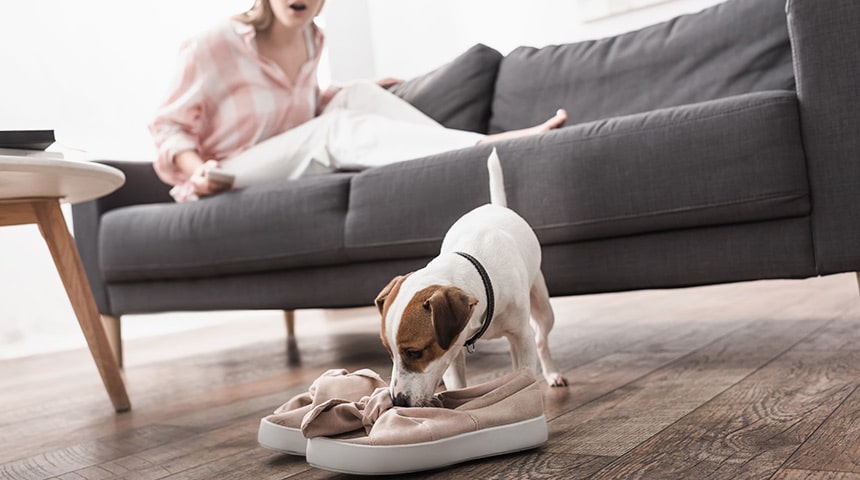
Does your dog take advantage of your absence to chew on your shoes, curtains or even some of your furniture? Know that all dogs have a great need to bite and chew, as this is part of their natural development. For some, however, this may be a symptom of a medical or behavioural problem. In this blog, we’re offering you 5 tips to limit the unwanted chewing activity of your canine companion.
Secure the environment
Before you leave, pick up all objects that are likely to tempt your pet. Children's toys, socks and shoes, for example, must be stored in your closets. Of course, all household cleaning products and chemical products must be kept out of reach!
Purchase dog toys
Stuffed toys, plastic bone-shaped toys, rubber balls ... give your dog items that can be chewed without restraint. But beware: a dog with powerful chewing abilities must not be able to swallow pieces of his toy.
Extend meal time
Does your dog devour his food at incredible speeds? Use a dispenser to prolong the duration of his meals and thus lessen his urge to chew. Moreover, if your dog suffers from nutritional deficiencies, he will be tempted to supplement his diet by gnawing on other objects.
Have your dog spend his energy
Walk or run with your dog daily and spend plenty of time playing - a dog has a lot of energy to burn! For example, make it a game to shake, pull and bite an object that you hold in your hands (a rope, a ball, etc.). To keep control over the beginning and end of the game, use your master’s authority: teach him to take and give objects on command.
Consult a specialist
The chewing activity of your dog has not improved despite the previous advice? Consult your veterinarian: if your pet is ingesting non-edible objects, he may be suffering from a behavioural or medical disorder.

